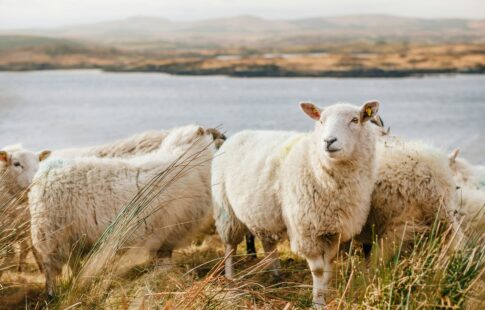
Is It Safe to Feed Your Child a Vegetarian Diet?
We are reader-supported. When you buy through links on our site, we may earn affiliate commission.
As a parent, your job is to raise your children to be strong and healthy. You also want them to become stewards of the planet we share. According to the United Nations, switching to plant-based eating can combat climate change. However, is it safe to feed your child a vegetarian diet?
Children need more nutrients than adults as their bodies grow and develop. Ensuring adequate intake of all the necessary macronutrients, vitamins and minerals is crucial to their development.
Above everything else, you want your child to thrive. That means choosing the healthiest eating style. Is it safe to feed your child a vegetarian diet? Here’s what the science says.
Defining a Vegetarian Diet
Before you can answer whether it’s safe to feed your child a vegetarian diet, it helps to know some of the most common spins on this meal plan. Your child can choose one of many vegetarian diets, including:
- Flexitarian: The most liberal style of vegetarianism with the widest range of variation. Flexitarians eat a primarily plant-based diet. Many of them enjoy seafood, and some consume the occasional chicken breast. Some flexitarians even include red meat in their diet, albeit rarely, such as for birthday or holiday meals. Most flexitarians (and pescatarians0 also eat dairy and eggs, although not all.
- Pescatarian: Pescatarians include seafood in their plant-based diet.
- Ovo-lacto vegetarian: These folks shun meat but eat dairy and eggs.
- Lacto-vegetarian: Consumes dairy but not eggs.
- Ovo-vegetarian: Consume eggs but not dairy, such as in the case of backyard chicken farmers.
- Vegan: The strictest form of a vegetarian diet for your child. Vegans do not consume any animal-based foods, including dairy and eggs. Furthermore, most of them avoid using anything raised from animals, such as leather. Although a few individuals espouse veganism for the health benefits, many do so for philosophical reasons.
Is a Vegetarian Diet Healthy for Your Child?
While many scientists, including the folks at the World Health Organization, recommend a plant-based diet for health reasons, going vegetarian doesn’t automatically fit the bill. After all, a meal plan consisting of nothing but chips, pizza and soda could technically qualify as vegetarian but wreak havoc on your body.
Switching your child to a vegetarian diet can benefit them, as we’ll see in a moment. However, it alone is not enough. You still need to heed the following healthy eating rules:
- Choose whole foods: The more a food looks like its natural form, the better.
- Avoid added sugar, salt and other additives: Too much sugar increases your Type 2 diabetes risk, and excess salt intake endangers your heart. Food additives can cause a range of adverse effects.
- Avoid ultra-processed foods: While your child may clamor for pink cereal or dinosaur-shaped cookies, they’re often high in all of the above nasty ingredients.
Benefits of Feeding Your Child a Vegetarian Diet
There are multiple benefits to choosing a vegetarian diet for your child, including the following.
1. Prevent Type 2 Diabetes
Diabetes has reached epidemic levels in America. Millions of Americans live in a prediabetic state, often without knowing it and the associated health risks. Although the Type 2 disease most often strikes those over 45, sedentary lifestyles and poor diets have made it more prevalent at younger ages.
Rates of those with Type 2 diabetes among the 10 to 19-year-old crowd continue to increase. A recent study found that processed meats are among the three leading causes of the disease, along with shunning whole grains in favor of unhealthy, processed carbs. Adopting a child vegetarian diet could reduce your little one’s risk.
2. Control Their Weight
Childhood obesity is also at terrifying levels. Nearly 20% of children aged 2 to 19 qualify as obese and more are overweight. Carrying too many pounds interferes with their development and increases their health risks.
Being overweight can also take a toll on your child’s self-esteem. They may develop an unhealthy relationship with food, leading to overly restrictive dieting or a binge-and-purge cycle. 13% of adolescents develop an eating disorder by age 20, such as anorexia, bulimia or compulsive overeating.
Feeding your child a healthy vegetarian diet opens doors to discussing specific foods’ calorie count and nutrient density. Let them assist in meal planning and encourage wholesome snacking on plant-based foods like nuts, dried fruits and edamame instead of ultra-processed convenience foods.
3. Increased Nutrient Intake
Plant-based foods are your best source of antioxidants and phytonutrients necessary for optimal health. Nutritionists recommend eating the rainbow, combining at least three colors at each meal to ensure a sufficient intake of different vitamins and minerals. It’s considerably easy to do so when you and your child eat a vegetarian diet with oodles of fruits and vegetables.
4. Decrease Overall Disease Risk
Research suggests a plant-based diet can reduce your risk of heart disease and cancer. Although no parent wants to think about their little one facing a grave illness at a young age, encouraging a vegetarian diet teaches healthy eating habits that stick with them for life.
5. Increase Sustainability Awareness
Meat production contributes nearly 15% to climate change. Feeding your child a vegetarian diet increases their sustainability awareness, especially if you discuss why you make the food choices you do. Parents often find their little ones leading the way, requesting more plant-based foods after learning about environmental risks in school.
Does Feeding Your Child a Vegetarian Diet Deprive Them of Protein?
A frequent question parents ask about feeding their children a vegetarian diet is whether they can get adequate protein on such an eating plan. To answer that question, it helps to remember that protein consists of various amino acids. It’s possible to get all 20 from plants, including the nine essentials. Therefore, this lifestyle will not deprive them of protein, as long as you ensure they get sufficient intake of each.
How hard you have to work depends on the type of vegetarian diet you espouse. All animal products, including dairy and eggs, are complete proteins, which means they contain all the amino acids humans need in consistent enough amounts to support health.
Therefore, most child vegetarians have no trouble meeting their protein requirements. If you choose for your child to eat a vegan diet, you’ll have to work harder to ensure they get the right blend of plant-based foods for adequate intake of each amino acid.
Can a Child Vegetarian Diet Contain Sufficient Calories for Growth?
Calorie guidelines for children depend on multiple factors, such as their age and activity level. However, a child vegetarian diet can contain more than enough calories to support growth.
On average, meat products contain more calories than fruits and vegetables, although this rule doesn’t always hold. For example, a small can of tuna fish has only 140 calories, while a medium avocado has 240. Much depends on the oils you use. However, vegetable oils such as olive and avocado contain roughly as many calories as butter — they’re simply more heart and planet-friendly.
Tips for Starting Your Child on a Vegetarian Diet
Are you ready to start feeding your child a vegetarian diet? Here are four tips to help you get started:
- Go slow: Suddenly adopting veganism overnight can overwhelm your child. It’s hard enough to get picky eaters to try one new thing — your little one may face a whole new menu. Instead, gradually reduce meat at meals, perhaps starting with meatless Monday and going from there.
- Make it teachable: Inform your child about the benefits of a vegetarian diet for the planet and their health.
- Involve your child in meal planning: Let them help whip up a few meals and have a say in what’s on the menu. You might have success making old favorites meat-free, like spaghetti or experiment with meat alternatives like the Beyond products.
- Allow for flexibility: Young children often eat what their parents do, although they have decided preferences. Older kids deserve the agency to choose their diets, within reason. If your 3-year-old can’t imagine life without the occasional “chickie nuggie,” consider bending the rules.
Safely Feeding Your Child a Vegetarian Diet
It’s safe to feed your child a vegetarian diet. Doing so may reduce several health risks while providing all the protein, calories and nutrients they need to thrive.
Use the above tips to begin your child on a vegetarian diet if you’ve decided it’s right for your family. You can all look forward to longer, healthier lives the plant-based way.
Share on
Like what you read? Join other Environment.co readers!
Get the latest updates on our planet by subscribing to the Environment.co newsletter!
About the author
Rachel Lark
Rachel serves as the Assistant Editor of Environment.co. A true foodie and activist at heart, she loves covering topics ranging from veganism to off grid living.





